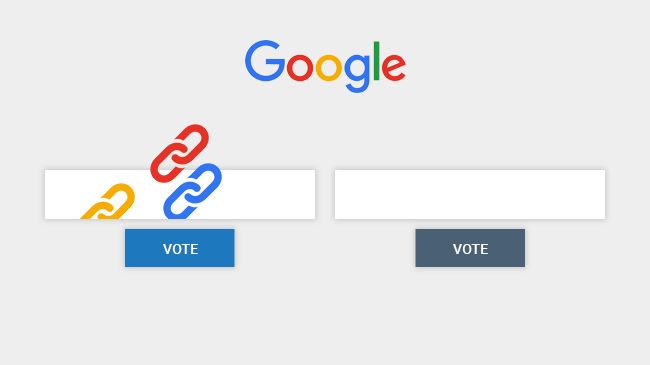How to Use a Backlink Checker
Getting good quality backlinks pointed at your site is one of the most important things you need to do for your website to show up in Google. The better your backlinks, the better your search ranking.
As simple as that sounds, you probably still have some questions. Where do backlinks come from? Where do you find a backlink checker to see who’s linking to you?
They’re good questions to ask. Let’s get some answers.
What are Backlinks?
When we say backlink, we mean any link on someone else’s website that points towards your site. This is different than an outbound link, which is a link on your site that points to a different website, or an internal link that points from one page of your website to another.
All 3 of those types of links are important if you want your website to show up in Google. Since backlinks are the hardest to get, that’s the kind that has the most weight.

Not all backlinks are equally valuable, though. When you’re working on showing up higher in Google search results, quality matters far more than volume. Good quality backlinks carry a lot of weight, while low quality links don’t help you out very much, meaning a single good link is better than a lot of poor quality ones.
Some types of backlinks will actually hurt your rankings. For example, if you try to manipulate search results with spammy tactics, you can get blacklisted and taken out of Google results entirely.
Blacklisting isn’t a problem for the vast majority of websites. Most likely, your poor quality backlinks will just prevent you from showing up higher in search results. Harsher penalties like blacklisting only happen when you’ve expressly broken Google’s rules by trying to manipulate the system.
Before you can start evaluating link quality, you have to be able to see your backlinks. Here’s how to see what links are pointing to your site with a paid or free backlink checker:

Where to Find a Backlink Checker
Google Search Console (aka Google Webmaster Tools) is your best bet for a free backlink checker. It’s not the same as your Google Analytics. You’ll have to set it up separately, but it’s not hard to do. Google has lots of resources to help.
We at NeONBRAND also use other website checker tools like ahrefs, SEMrush, BuzzSumo, and Moz to monitor backlinks and get other useful SEO information. They’re more user friendly than Search Console, and we like that the information about backlinks is super easy to understand and apply. Additionally, these types of programs allow you to look at other useful information that Search Console just doesn’t have, like your competitor’s backlinks.
With all of these backlink checkers, you’ll be able to see the backlinks to your site. There’s a lot you can do with basic information like who’s linking to you and what pages on your website are getting the most backlinks.
Pages with more good quality links rank higher in Google. If you want a particular page to rank better, you’ll need to build more links towards that specific page.
You can use SEO tools like Google Search Console and ahrefs to help evaluate the quality of your links. If you don’t have any high quality links pointing to your site, it’s probably time to change your SEO strategy.

Backlink Quality
A good quality backlink is all of these things:
- It’s very relevant, meaning the page giving the link and the page receiving the link are about the same topic
- It comes from an authoritative website
- Both the giving and receiving pages are written in the same language
- The anchor text is relative to both the page with the link and the page being linked to
- The link is part of the text on the page, like this
- The link has a good reason to exist, meaning a person reading that page is likely to find that link useful
- Nobody paid for the link to be there
The more of these criteria that are met, the better quality the link.
Google counts links like votes. Quality indicators help them figure out if you earned that vote or if you’re just trying to beat the system. Anything that looks to Google like you’re trying to manipulate results can hurt your rankings.

Google’s published link quality guidelines list all of these things as bad ideas:
- Automatically generated content
- Sneaky redirects
- Link schemes
- Cloaking
- Hidden text and links
- Doorway pages
- Scraped content
- Thin affiliate programs
- Irrelevant keywords
- Creating pages with malicious behavior
- User-generated spam
We’ll go over these in more detail in another post. For now, there are a few important things to look for when you’re checking the backlinks pointing at your site.
First, you should look at the overall number of links leading back to you.

If you haven’t been actively trying to build links to your site, you probably don’t have very many yet. Backlinks don’t just happen, especially when your website is young. Start a responsible SEO plan to get things moving.
Next, look through your links and note anything that comes from a spammy or irrelevant website. Foreign language links are considered irrelevant, even if they’re about a similar topic. If you’re using ahrefs or a similar SEO tool, glance at the domain authority from referring pages, too. The higher that number, the better.
Most of your links should be from “real” and relevant websites. It’s okay if a few of your backlinks are in another language or come from weird places, just as long as the vast majority make sense. Keep building good links and you’ll be fine.
A large number of irrelevant, low quality links could be a problem, especially if those backlinks violate Google’s quality guidelines. If that’s the case for you, it might be time for a cleanup.

Backlink Cleanup
For business that do their own SEO, the best course of action is almost always increasing your backlink outreach and working on getting a lot more good links.
High quality backlinks have more link juice, which means they are valued more heavily by Google. A few spammy links are negligible compared to a bunch of great ones. Put great, original stuff on your website, and start promoting it.
On rare occasions, your bad links can be a more serious problem.
This usually happens when you’ve hired an inexperienced SEO person or bought a backlink package on a freelancer site. Pro tip: NEVER BUY BACKLINKS. Ever. For real. It’s such a horrible idea.

If you have a huge number of bad links and you’re positive that those links are significantly hurting your Google rankings, you can disavow links.
However, we need to warn you first:
Never, ever, ever disavow links pointing at your site unless you 100% know what you’re doing.
Once you disavow a link, you can’t ever change your mind. It’s gone forever. That’s it. If you have any doubt at all, you should get help from an expert or just leave your links alone.
You can find Google’s instructions for disavowing links here.
Bonus Backlink Tips
There are loads of SEO and marketing opportunities within the backlinks you’ve already earned. You just need to know what to look for.

Check out the pages that are linking to you. Some of those websites are probably great potential connections.
Take note of any that you think you’d like to work with, because you already have a foot in the door to help you build a relationship. Remember, they voluntarily linked to your site, so they see some kind of value in your content.
Wherever it makes sense, reach out and introduce yourself. There are lots of ways you can build valuable connections, like:
- Writing and/or inviting guest posts
- Conducting interviews
- Offering affiliate programs
Send personalized messages rather than blasting a generic email to the people who’ve linked to you, and put some thought into your outreach before you click send. Consider why that website linked to you in the first place and strive to give more value.
And here’s one last tip:
Check on your backlinks regularly. You should know what’s going on with your website so that you can catch problems early and find opportunities while they’re fresh! Set up backlink alerts with a tool like ahrefs if you’re going to pay for a backlink checker, and keep up your outreach to generate new links over time.

